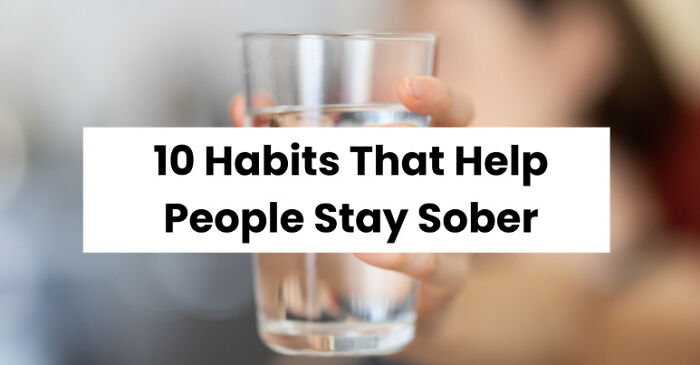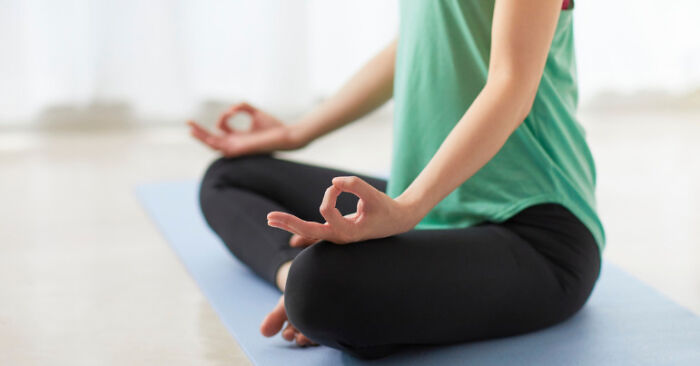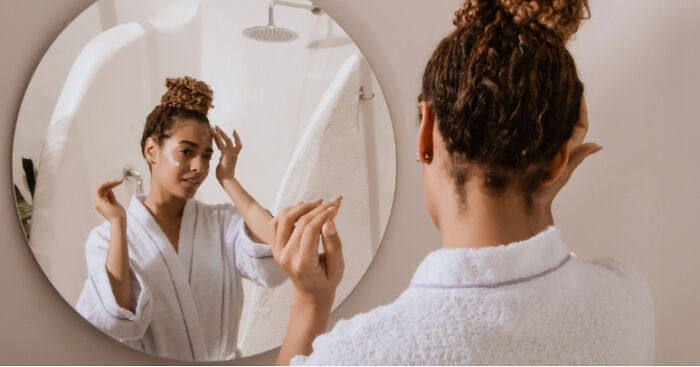Most people think recovery is about staying away from alcohol or drugs, but it’s much more than that. Recovery is about building a life for yourself. It’s about becoming a better version of yourself.
All of that may seem overwhelming, but you don’t need life-changing routines to make progress. Starting small often leads to the biggest changes.
Here are 10 simple things that help people stay sober, and they can help anyone live a happier life.

1. Start the Day with Gratitude Journaling

No one expects you to write full-fledged essays with perfect grammar. Even if it’s just writing down “my cat,” or “the fact that I survived Monday,” gratitude journaling shifts your mindset. People in recovery often do this, as it reminds them of how far they’ve come. But this isn’t just for people trying to stay sober; anyone can benefit by starting their day with a little gratitude.
2. Make Your Bed

It sounds silly. You might wonder, “What does making my bed have to do with anything?” It may seem insignificant, but this tiny act is a secret weapon. The day just started, and you’ve already accomplished something. Recovery homes encourage this habit because it builds routine and a sense of pride in small wins. (Plus, climbing into a freshly made bed at night is the best reward.)
3. Stay Hydrated

Boring? Maybe. But it’s wild how something as simple as water can completely change your day. When you’re hydrated, you think clearly, your mood lifts, and even your body feels lighter. A lot of people in recovery laugh about how they used to reach for a drink when really, they just needed a glass of water. Now, carrying a water bottle everywhere is like a quiet little reminder: prioritize yourself.
4. Check in with Someone

Whether it’s a quick text to a sober buddy, a group meeting, or even a call to your parents, daily check-ins keep you grounded. Addiction feeds on loneliness. It makes you want to hide away from everyone. Sharing a laugh with a friend can make the tough days feel lighter. Being seen and supported reminds you that you don’t have to do this alone, and that’s where real healing begins. And honestly, we could all use more “How are you really?” conversations.
5. Move Your Body

Exercise doesn’t have to mean running a marathon. Outdoor activities like a walk around the block, a quick yoga flow, or even dancing like nobody’s watching can improve mood. At sober living homes, group walks or gym sessions often double as responsibility and bonding time.
At recovery homes, residents often discover that moving together is therapy disguised as sweat, laughter, and teamwork. This combination of structure and fun is what makes sober living about learning to enjoy life again.
6. Practice Mindfulness

Meditation, deep breathing, or even sitting still for five minutes can make a huge difference. Recovery is about learning to sit with feelings and accepting them instead of ignoring them. Mindfulness helps. For everyone else, it’s a way to press pause in a busy world and reset.
7. Eat Balanced Meals

Nutrition plays a bigger role in mood than most people realize. In recovery, eating healthy keeps blood sugar steady, which means fewer mood swings and more energy throughout the day. For someone in recovery, sitting down for a good meal is about rebuilding routines, finding comfort in cooking, and enjoying the simple act of sharing food with others again. And let’s be honest, food makes everyone happy.
8. Limit Screen Time

We’re all familiar with this situation. “Just one more TikTok” turns into an accidental 2-hour doomscroll marathon. For people in recovery, endless screen time can be a trigger for boredom or isolation. Swapping some of that time for reading, hobbies, or chats is a game-changer.
9. Celebrate Small Wins

Made it through a stressful day without caving? That’s a win. Cooked yourself a healthy dinner instead of ordering junk? Another win. Recovery teaches you to celebrate the little victories. Honestly, we should all give ourselves more credit for the small stuff. It matters more than most people realize.
10. Create a Night Time Routine

Phones off, lights low, maybe a cup of tea or a favorite book. Good sleep is one of the best things you can do for your mental health, and it usually takes a little preparation. A nightly ritual tells your mind and body it’s time to slow down and let go of the day. Whether it’s reading, journaling, or just sitting quietly, these small steps make bedtime feel peaceful and give you the kind of rest that makes tomorrow easier.
 Follow Us
Follow Us





